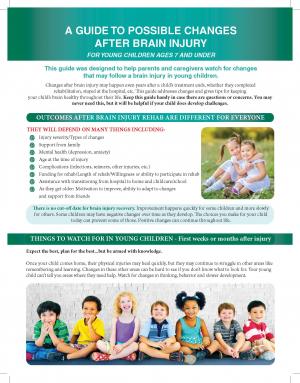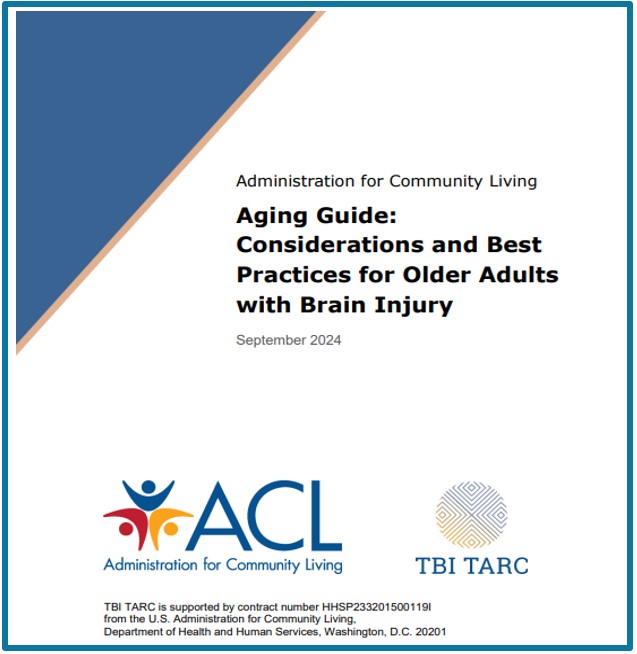 This resource of the ACL's Traumatic Brain Injury (TBI) Technical Assistance and Resource Center’s (TARC) Aging Guide: Considerations and Best Practices for Older Adults with Brain Injury was designed to provide states with tools for initiating or improving partnerships within both state aging networks and mental health systems. The resource was developed in partnership with several subject matter experts.
This resource of the ACL's Traumatic Brain Injury (TBI) Technical Assistance and Resource Center’s (TARC) Aging Guide: Considerations and Best Practices for Older Adults with Brain Injury was designed to provide states with tools for initiating or improving partnerships within both state aging networks and mental health systems. The resource was developed in partnership with several subject matter experts.
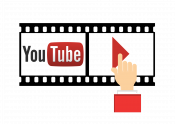
YouTube Playlist for Aging & Older Adults: A helpful collection of videos outlining information about TBI in older adults including information such as how to identify TBI and changes that may occur.
SCREENING FOR PRIOR HISTORY OF BRAIN INJURY:
An abundance of research now clearly shows that people with a prior history of brain injury are more likely to experience problems later in life (beginning as early as one year later). These problems can include: substance misuse, mental health issues, domestic violence (either as the perpetrator or the victim), additional brain injuries, chronic pain, justice involvement, and more. Early identification and ongoing monitoring are, therefore, vitally important.
Ohio State University (OSU) TBI Identification Method — MODIFIED The Ohio State University Brain Injury Identification Method MODIFIED (OSU BI-ID MODIFIED) is a standardized procedure for eliciting lifetime history of any type of brain injury (stroke, tumor, TBI, etc.) via a structured interview.
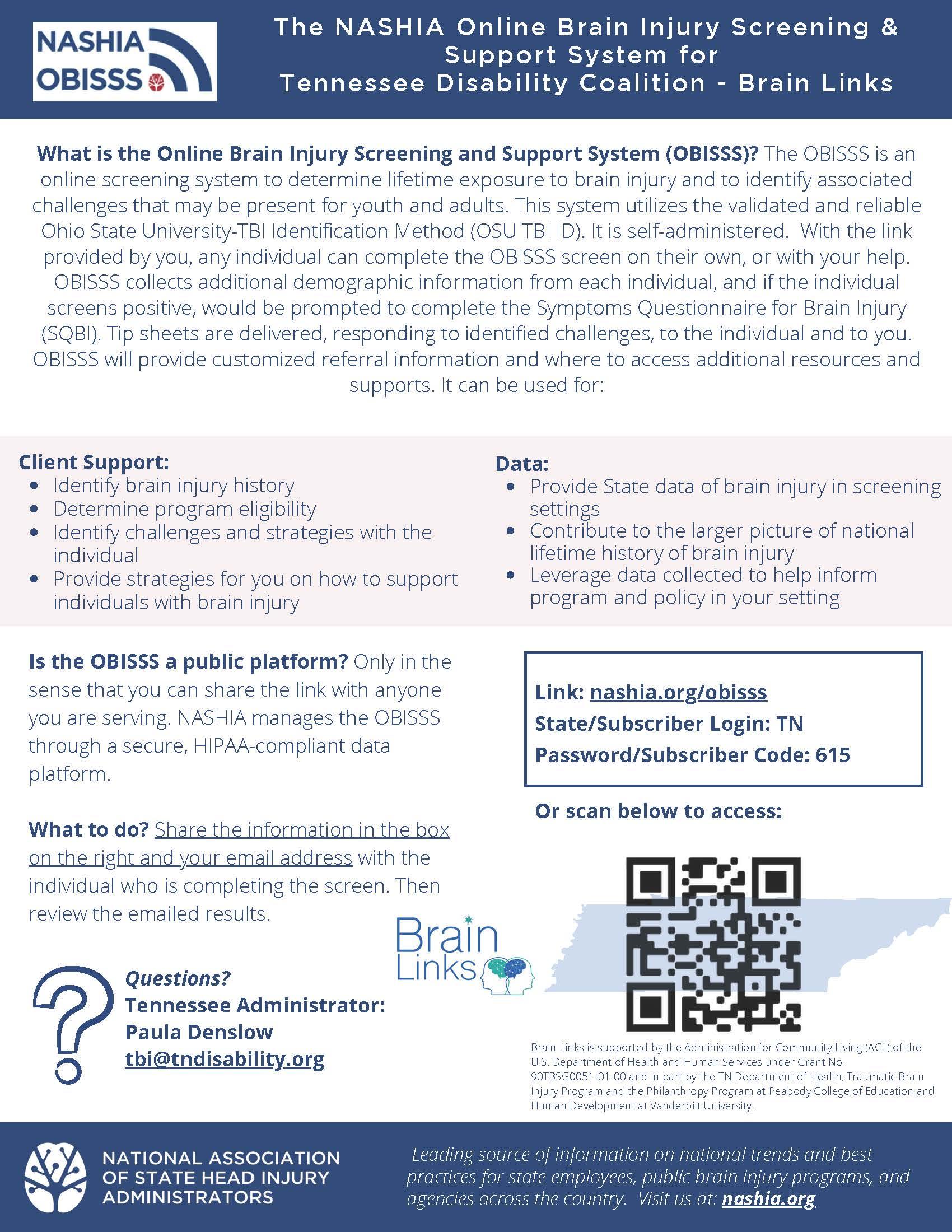
NASHIA’s OBISSS is an online subscription-based screening system that determines a potential exposure to brain injury in someone’s lifetime and identifies any associated problems that are present. Watch the recording of our informational session and view the slide deck for more information.
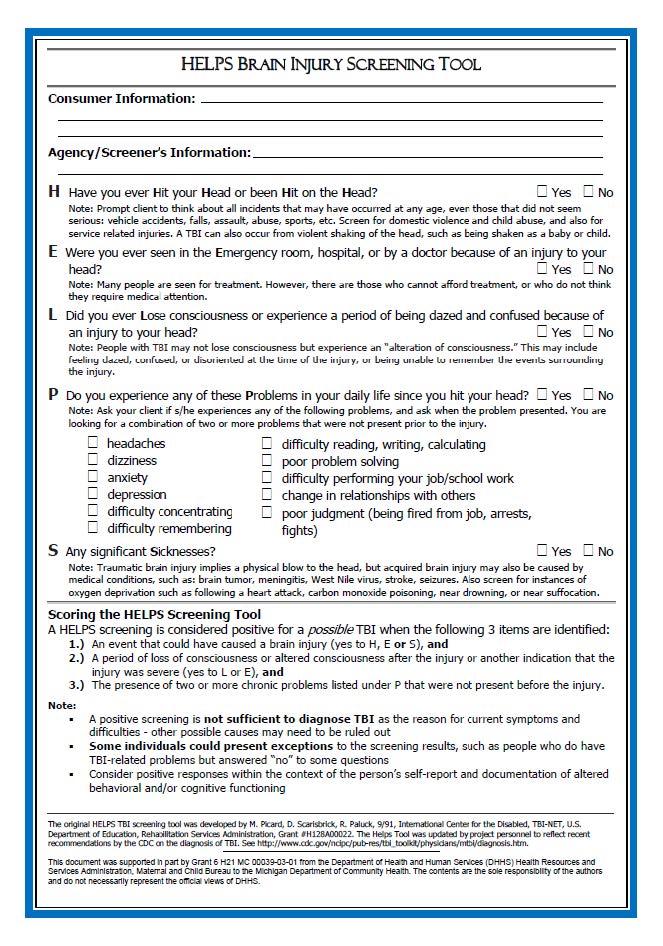
The HELPS Brain Injury Screening Tool was developed by M. Picard, D. Scarisbrick, R. Paluck, 9/91, International Center for the Disabled, TBI-NET, U.S. Department of Education, Rehabilitation Services Administration, Grant #H128A00022. The Helps Tool was updated by project personnel to reflect recent recommendations by the CDC on the diagnosis of TBI.
On intake (and possibly yearly) Brain Link's encourages using the HELPS Brain Injury Screening Tool or consider adding questions to the current intake form.
Yearly screening: Recommend using the HELPS Brain Injury Screening Tool OR add questions to the annual health history intake forms.
Example: Circle or provide checkboxes with a space for them to explain.
Ask: Have you had an injury? Yes No
Cause of injury: Fall Car/motor vehicle accident other
If Yes: Did you lose consciousness or become dazed? Yes No Not sure
Please explain: __________________________________________________
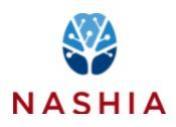
This list of resources is shared by the National Association of State Head Injury Administrators (NASHIA)
- Ohio State University (OSU) TBI Screening Tool: The Ohio State University Traumatic Brain Injury (TBI) Identification Method (OSU TBI-ID) is a standardized procedure for eliciting lifetime history of TBI via a structured interview. Read the full article.
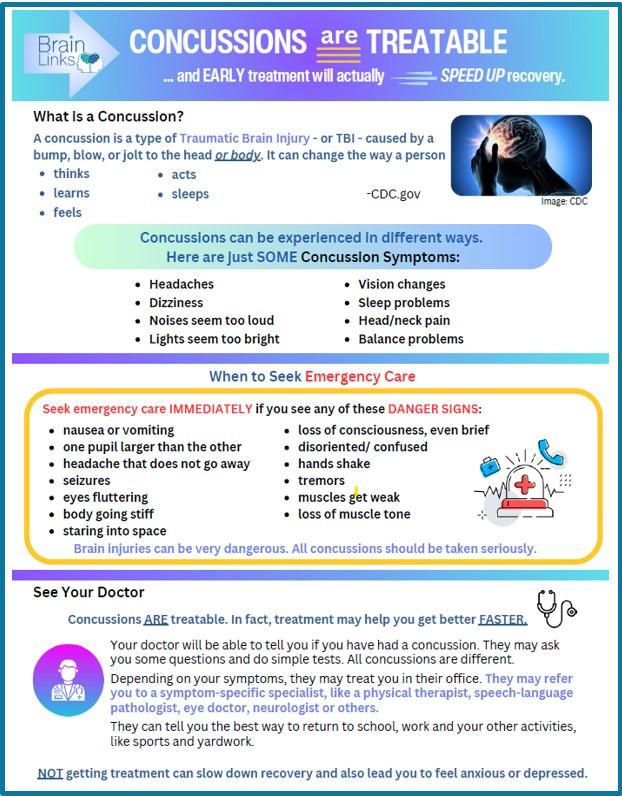
Concussions Are Treatable: In fact, treatment may help you get better FASTER. Your doctor will be able to tell you if you have had a concussion. They may ask you some questions and do simple tests. All concussions are different. Depending on your symptoms, they may treat you in their office. To learn more, explore this resource.
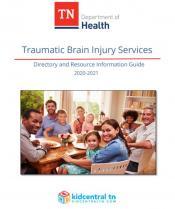
TN TBI Services Directory & Resource Guide: The Tennessee Department of Health Traumatic Brain Injury Service Directory and Resource Information Guide was designed to assist in locating programs, organizations, agencies, and services available across the state of Tennessee and the nation.
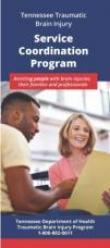
TN TBI Service Coordination Program: There are currently eight Service Coordinators (view list) located in various non-profit agencies across the state. The Service Coordinator’s role is to work with persons with brain injury and their family to access current needs. The goal of service coordination is to improve the quality of life for persons with brain injury.
Service Coordination services are provided free of charge, services include:
** develops a comprehensive plan of care;
** provides referrals to available resources;
** coordinates services for individual client advocacy; and
** bridges gaps in the service delivery system.
Virtual and In-person Brain Injury Support Groups have been established across the state. To learn more about services call 1-800-882-0611.
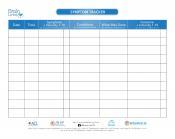
Symptom Tracker: Track Symptoms, pain level changes, what provokes and what helps. Good information to take back to the healthcare provider.
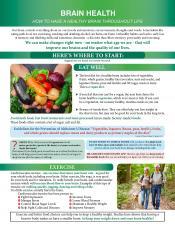
Brain Health: How to Have a Healthy Brain Throughout Life: This material provides research-based tips for creating a healthy brain, regardless of age. This guide was originally developed to help people with brain injuries recover to the fullest extent possible and to help them prevent or minimize potential negative changes as they age. However, it was quickly realized that the information in Brain Health is beneficial for everyone. Available in English & Español.
LOOKING FOR MORE INFORMATION? CHECK OUT THE HELPFUL RESOURCES TAB!
 Concussions Are Treatable: In fact, treatment may help you get better FASTER. Your doctor will be able to tell you if you have had a concussion. They may ask you some questions and do simple tests. All concussions are different. Depending on your symptoms, they may treat you in their office. To learn more, explore this resource.
Concussions Are Treatable: In fact, treatment may help you get better FASTER. Your doctor will be able to tell you if you have had a concussion. They may ask you some questions and do simple tests. All concussions are different. Depending on your symptoms, they may treat you in their office. To learn more, explore this resource.
Age Specific Patient Educational Tools:
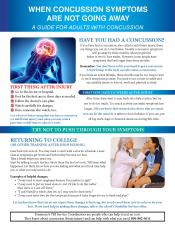 When Concussion Symptoms Are Not Going Away: A Guide for Adults with Concussion. English and in Español
When Concussion Symptoms Are Not Going Away: A Guide for Adults with Concussion. English and in Español
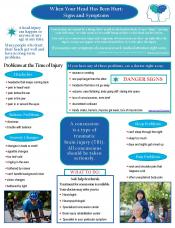 Adult Signs & Symptoms Tool: English and in Español.
Adult Signs & Symptoms Tool: English and in Español.
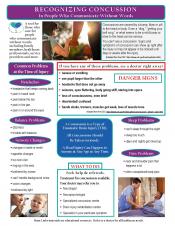 Recognizing Concussion in People Who Communicate Without Words: English and in Español.
Recognizing Concussion in People Who Communicate Without Words: English and in Español.

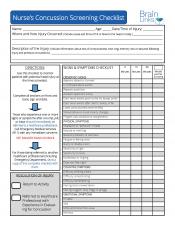 Nurse's Concussion Screening Checklist: Adapted by Brain Links with permission from the CDC.
Nurse's Concussion Screening Checklist: Adapted by Brain Links with permission from the CDC.
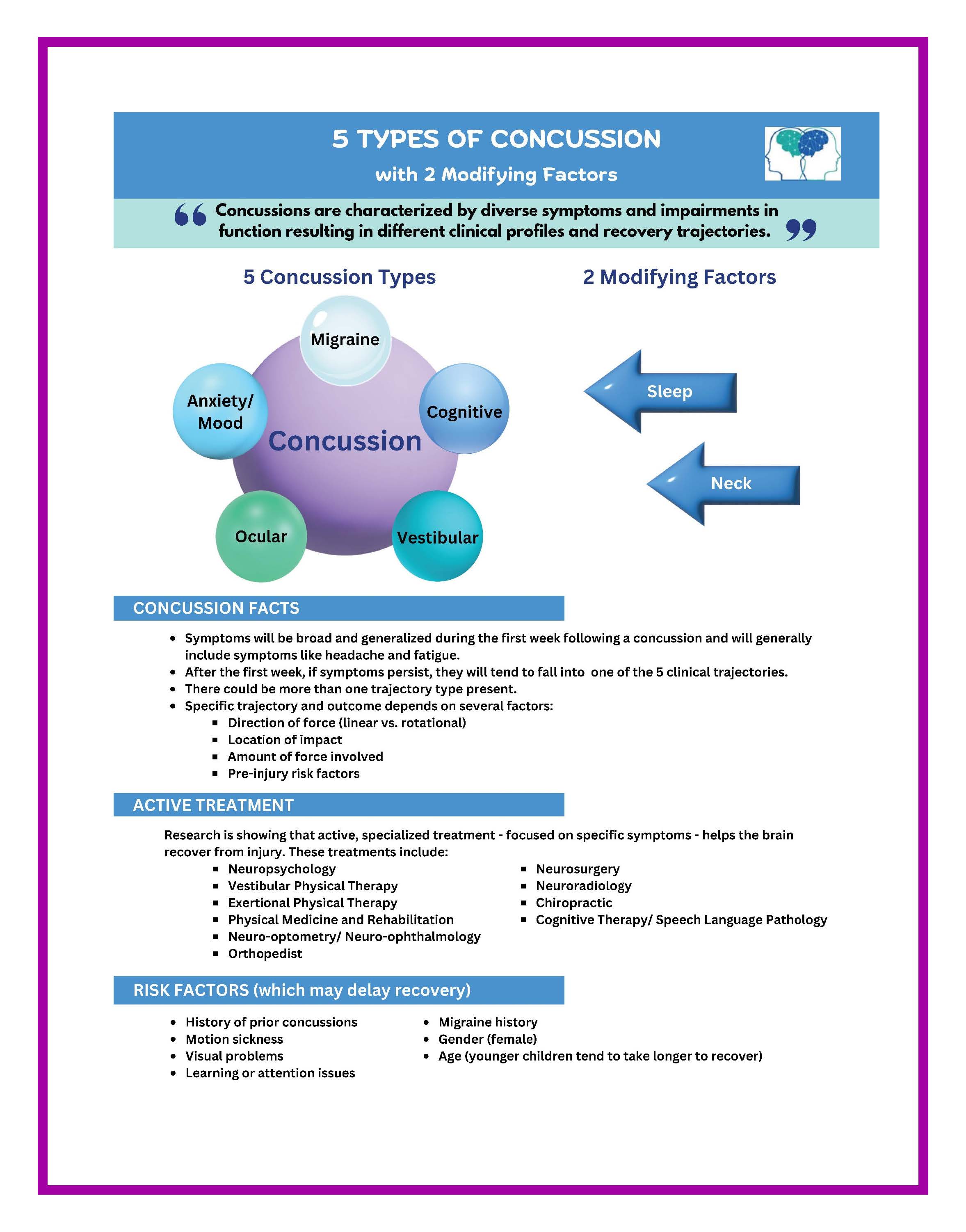 The 5 Types of Concussion and 2 Modifying Factors Infographic was created to reflect the update to the model by researchers at the University of Pittsburgh Medical Center based on extensive research previously developed by them and others. Word Document File.
The 5 Types of Concussion and 2 Modifying Factors Infographic was created to reflect the update to the model by researchers at the University of Pittsburgh Medical Center based on extensive research previously developed by them and others. Word Document File.

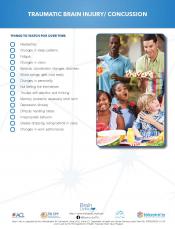 Things to Watch For Over Time: This sheet will help you learn what symptoms to keep an eye out for after a concussion.
Things to Watch For Over Time: This sheet will help you learn what symptoms to keep an eye out for after a concussion.
A Guide To Possible Changes After Brain Injury: For Young Children Ages 7 and Under. This guide was designed to help parents and caregivers watch for changes that may follow a brain injury in young children. Changes after brain injury may happen even years after a child’s treatment ends, whether they completed rehabilitation, stayed at the hospital, etc. This guide addresses changes and gives tips for keeping your child’s brain healthy throughout their life. Keep this guide handy in case there are questions or concerns. You may never need this, but it will be helpful if your child does develop challenges. PDF and Text files in English. Document Rationale
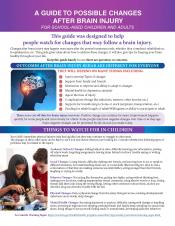 A Guide To Possible Changes After Brain Injury: For School-Aged Children & Adults: By design, the Guide is best when distributed by rehabilitation personnel in inpatient and outpatient therapy programs and by medical personnel in trauma units, pediatrician’s offices, family practices, neurology offices, surgical offices, and other specialty offices. It is meant to be given to anyone who has sustained a diagnosed brain injury, as well as anyone who sustained a significant trauma where they may experience brain injury symptoms and downstream consequences; even if they do not show early symptoms or early symptoms seem to have cleared. English and in Español.
A Guide To Possible Changes After Brain Injury: For School-Aged Children & Adults: By design, the Guide is best when distributed by rehabilitation personnel in inpatient and outpatient therapy programs and by medical personnel in trauma units, pediatrician’s offices, family practices, neurology offices, surgical offices, and other specialty offices. It is meant to be given to anyone who has sustained a diagnosed brain injury, as well as anyone who sustained a significant trauma where they may experience brain injury symptoms and downstream consequences; even if they do not show early symptoms or early symptoms seem to have cleared. English and in Español.
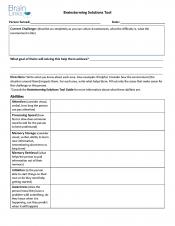 Brainstorming Solutions Tool: Helpful template for gathering information on person's skills and challenges to facilitate development of solutions. Great for direct service providers, students and new hires.
Brainstorming Solutions Tool: Helpful template for gathering information on person's skills and challenges to facilitate development of solutions. Great for direct service providers, students and new hires.
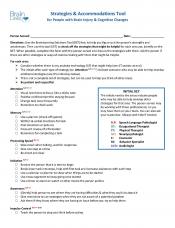 Strategies & Accommodations Tool: Use the Brainstorming Solutions Tool (BST) first, to help you figure out the person’s strengths and weaknesses. Then use this tool (SAT) to check off the strategies that might be helpful for each area you identify on the BST. When possible, complete this form with the person served and discuss the strategies with them. Ask the person if there are other strategies or ways of communicating with them that might be helpful.
Strategies & Accommodations Tool: Use the Brainstorming Solutions Tool (BST) first, to help you figure out the person’s strengths and weaknesses. Then use this tool (SAT) to check off the strategies that might be helpful for each area you identify on the BST. When possible, complete this form with the person served and discuss the strategies with them. Ask the person if there are other strategies or ways of communicating with them that might be helpful.

Evidence-based Concussion Management Protocol 2024. Recommendation: 2 Visit Minimum.
A tool to guide screening, patient education, referral and ongoing monitoring. Outcomes are better if educational materials are given at the first visit.
** Use the Protocol with the TBI Toolkit for Health Care Providers.
** Explore this YouTube Video to learn more about the Protocol and other resources.
Material Rationale ~~~ Research Support
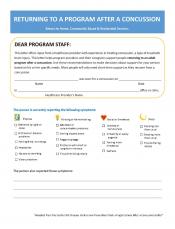 Returning to a Program After a Concussion Letter: This letter offers input from a healthcare provider with experience in treating concussion, a type of traumatic brain injury. This letter helps program providers and their caregivers support people returning to an adult program after a concussion. Use these recommendations to make decisions about support based on his or her specific needs. Most people will only need short-term support as they recover from a concussion.
Returning to a Program After a Concussion Letter: This letter offers input from a healthcare provider with experience in treating concussion, a type of traumatic brain injury. This letter helps program providers and their caregivers support people returning to an adult program after a concussion. Use these recommendations to make decisions about support based on his or her specific needs. Most people will only need short-term support as they recover from a concussion.

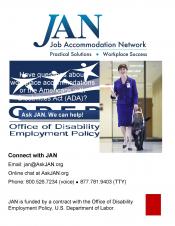 Job Accommodations Network: a publication detailing accommodations for individuals with limitations related to executive functioning. These ideas may be helpful in determining accommodations.
Job Accommodations Network: a publication detailing accommodations for individuals with limitations related to executive functioning. These ideas may be helpful in determining accommodations.
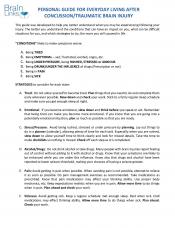 Personal Guide for Everyday Living: A tool to help people with TBI (especially mild TBI) better understand what conditions make things harder and what the person can do about it. Best if used as part of a conversation with the clinician. English and in Español.
Personal Guide for Everyday Living: A tool to help people with TBI (especially mild TBI) better understand what conditions make things harder and what the person can do about it. Best if used as part of a conversation with the clinician. English and in Español.
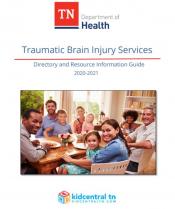 TN TBI Services Directory & Resource Information Guide: The Tennessee Department of Health Traumatic Brain Injury Service Directory and Resource Information Guide was designed to assist in locating programs, organizations, agencies, and services available across the state of Tennessee and the nation.
TN TBI Services Directory & Resource Information Guide: The Tennessee Department of Health Traumatic Brain Injury Service Directory and Resource Information Guide was designed to assist in locating programs, organizations, agencies, and services available across the state of Tennessee and the nation.

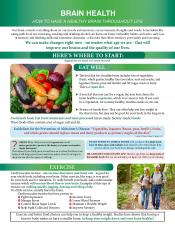 Brain Health: How to Have a Healthy Brain Throughout Life: By design provides research-based tips for creating a healthy brain, regardless of age. This guide was originally developed to help people with brain injuries recover to the fullest extent possible and to help them prevent or minimize potential negative changes as they age. However, it was quickly realized that the information in Brain Health is beneficial for everyone. English and in Español.
Brain Health: How to Have a Healthy Brain Throughout Life: By design provides research-based tips for creating a healthy brain, regardless of age. This guide was originally developed to help people with brain injuries recover to the fullest extent possible and to help them prevent or minimize potential negative changes as they age. However, it was quickly realized that the information in Brain Health is beneficial for everyone. English and in Español.
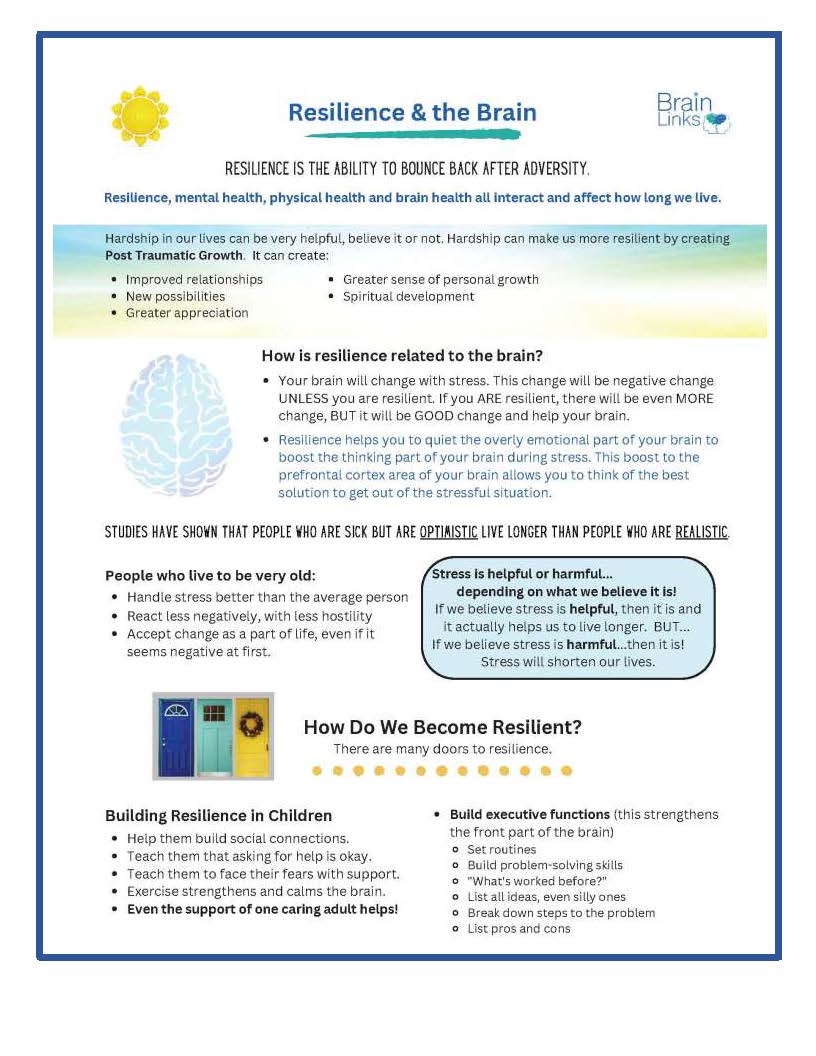 Resilience and the Brain: This material is great for people of all ages who are looking to learn more about resilience, helping themselves and/or others. Building resilience supports brain health, mental health, physical health and ultimately longevity. English Text Document.
Resilience and the Brain: This material is great for people of all ages who are looking to learn more about resilience, helping themselves and/or others. Building resilience supports brain health, mental health, physical health and ultimately longevity. English Text Document.
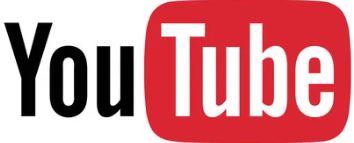
Brain Links YouTube Playlist on Brain Health



